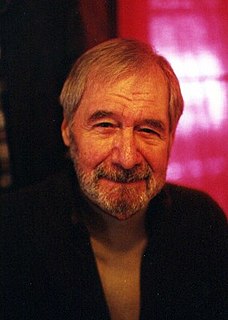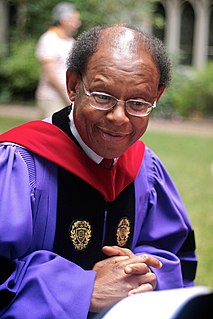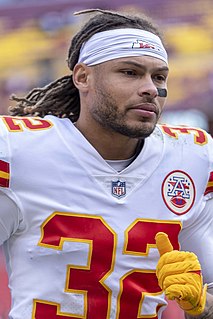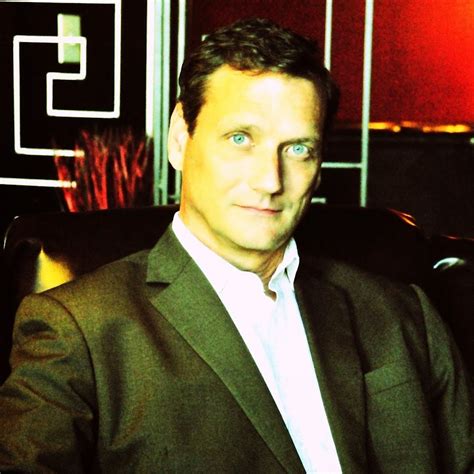A Quote by Steven Weinberg
In my experience, many Americans think of religion as important and want to do whatever they can to support it. But if you ask them what they themselves believe, you'll find they're very uncertain about their religious beliefs. They don't actually accept the theology of their official church.
Related Quotes
Palestinian believers have a unique experience with US foreign policy and our close ties with Israel. This alliance has many layers, but given the strong support of the US church, and the frequency of religious language surrounding these policies, Palestinian Christian friends raise important and challenging questions about how we understand the intertwining of theology and politics in the US.
I don't see how one can "believe in organized religion." What does it mean to believe in an organization? One can join it, support it, oppose it, accept its doctrines or reject them. There are many kinds of organized religion. People associate themselves with some of them, or not, for all sorts of reasons, maybe belief in some of their doctrines.
An interesting thing about the religious people who run Iran is that one of their problems with Ahmadinejad, who they thought would be one of their guys because he's so religious, is that he actually has some really nutty ideas about religion. He's too religious. He's too literal. I mean, there are plenty of people in Iran who like Ahmadinejad's religious beliefs, just as there are plenty of Christian fundamentalists in America who like George W. Bush's beliefs. But there are also plenty of people who are very uncomfortable with his overt religiosity.
SETH said: The natural person is to be found, now, not in the past or in the present, but beneath layers and layers of official beliefs, so you are dealing with an archeology of beliefs to find the person who creates beliefs to begin with. As I have said often, evidence of clairvoyance, telepathy, or whatever, are not eccentric, isolated instances occurring in man's experience, but are representative of natural patterns of everyday behavior that become invisible in your world because of the official picture of behavior and reality.
I think one of the great strengths of Americans United is that it has such diversity. That it has not only people who have no religious belief, but lots of people who do and who take that belief very seriously. And I think that provides us with a great opportunity to talk about the separation of church and state. There are plenty of other groups, and some of them are quite good at what they do, but they also have an agenda of non-theism, but we don't have, you might say, a theology. We just have a commitment to the Constitution.
I hope and believe my co-religionists understand and admit that I disclaim their theology in toto, and that by no twisting of language or darkening of its meanings can I be made to have any thing whatever in common with them about religious matters... they must take my word for it that there is nothing in common between their theology and my philosophy.
I think me, as a leader, as a guy that's been cut, been humiliated, embarrassed, whatever you put on it, I think it's important just to embrace the guys around you, really support them, encourage them and then kinda give them that confidence. Let them know that you believe in them, and hopefully they'll get to believing in themselves.
I disagree with a couple of the stances of the Catholic Church. My older brother is gay, and it's important for me to be able to love him completely and freely, and it's important for me to spread beliefs in the world that are not going to limit people in their love. I can't support a religion that doesn't support my brother.
What is dangerous about the far right is not that it takes religion seriously - most of us do - but rather that it condemns all other spiritual choices - the Buddhist, the Jew, the Muslim, and many others who consider themselves to be good Christians. The wall of separation between church and state is needed precisely because religion, like art, is too important a part of the human experience to be choked by the hands of censors.
If you look at Mormonism, it's a very appealing community. It takes care of itself; there are active charities. It's got a successful work ethic. Whatever you might think about the authenticity of their theology or their history, it's immaterial in terms of how the religion itself actually functions.
The Chief Justice's ... main point seemed to be that the references to God in the Pledge of Allegiance aren't really religious and therefore are not that important - something I would think would offend Christians who think it should stay because it is religious and does matter. Too many Christians appear to be desperate to shore up their failing confidence in their own religious beliefs by having the government officially endorse those beliefs.





































